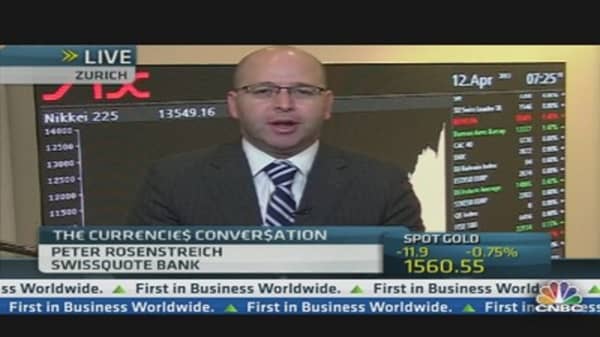There was widespread confusion over the funding of Cyprus' bailout on Friday morning, as media reports suggested the country had asked for a further 10 billion euros of aid.
Dow Jones reported that Cypriot President Nikos Anastasiades would ask for "extra assistance" from the European Union (EU), a report quickly denied by the Cyprus finance ministry which said the president was referring to technical and structural aid.
The president of the euro group, Jeroen Djisselbloem, suggested to CNBC that Cyprus would get some kind of additional aid.
"That is up to the Cypriot government, and the European Commission has said that they will do everything it can to help, also making available European funds where possible," he said.
Euro zone officials quickly dismissed the notion that Cyprus could receive more than the agreed 10 billion euro bailout but Reuters reported the aid would be structural funds to help the economy through its recession.
"Cyprus is going to go through a very hard time, there's no doubt about that, the restructuring of the banking sector will be a pretty tough burden to carry," Djisselbloem told CNBC in Ireland, where the euro group of finance ministers are meeting on Friday.
His remarks come as country confirmed that the cost of its bailout program had risen from 17.5 billion euros to 23 billion euros ($30 billion).
Cyprus confirmed that the cost of its bailout had surged and also said a sale of its gold reserves is among the options available to contribute to its international bailout.
Under the current bailout it has negotiated, Cyprus will receive 10 billion euros ($13 billion) in international aid, leaving a gap of 7.5 billion euros to be raised from asset sales, increased taxes and the controversial levy on bank deposits. With the new 23 billion euro cost, Cyprus would need to raise an additional 5.5 billion euros.
Cyprus is unlikely to be able to raise this amount of cash, increasing the chances it will be forced to leave the euro zone.
"It seems to be like that's the way they are moving," Peter Rosenstreich, chief forex analyst at Swissquote Bank told CNBC Friday when asked whether Cyprus is being used as a test case for a euro zone exit.
"But at this point I think what we're going to still see is Cyprus within the euro zone. I think there's no real catalyst at this point, while there's a lot of small little cuts... at this point the break up doesn't seem to be coming down the pipe," he said.
Dijsselbloem defended the plan, however: "I think this is a viable plan, we've got the ten billion coming in from program and all the other elements are coming from the Cypriot government or the private sector in terms of privatizations and the bail-in of the banks, adding up to a very strong program which will definitely help Cyprus."
Cyprus also confirmed that it may have to sell most of its gold reserves to raise about 400 million euros to finance its part of the bailout, Reuters reported.
"The Cypriot government put various options forward, including this," government spokesman Christos Stylianides told a news briefing on Thursday.
(Read More: Portugal, Ireland Likely to Win Time to Repay Loans)
"In its consultations on drafting the memorandum of understanding the Cypriot government included such options so we could have the possibility of meeting financing requirements," he said, adding that the gold sale was "one of many" options.
That follows a denial by Cyprus' central bank on Wednesday, which said no such plans were afoot.
"I think the ECB is imposing a strait jacket on those economies where it can get away with it," Zachary Latif, managing director, TLG Capital Investment.
Gold on Thursday fell to its lowest since April 5 at $1,553 an ounce. On Wednesday gold posted its biggest one-day fall since February 20, accelerating losses after news of the Cyprus gold sale plan.
(Read More: Why a Cyprus Gold Sale Isn't Being Taken Seriously)





